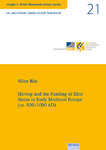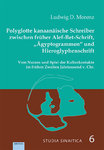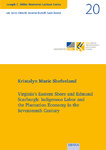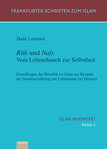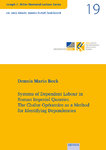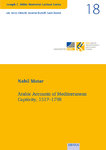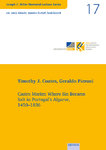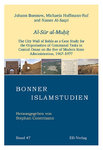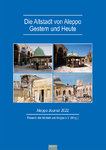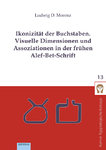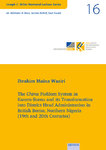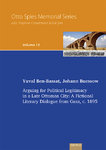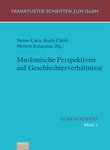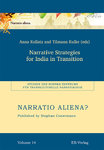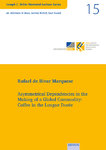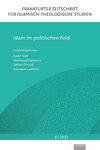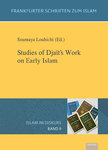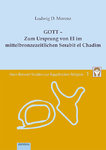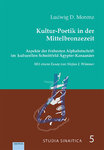- ISLAMWISSENSCHAFT
- ISLAMISCHE_STUDIEN
- JOSEPH C. MILLER MEMORIAL LECTURES SERIES
- ASIENWISSENSCHAFT
- ARCHÄOLOGIE ALS KULTURWISSENSCHAFT
- RELIGIONSWISSENSCHAFT
- RELIGIONSPÄDAGOGIK
- GESELLSCHAFT UND KIRCHE
- KIRCHE UND GEMEINDE
- GESUNDHEIT UND KRANKHEIT
- KINDERGARTENPÄDAGOGIK
- OPEN_ACCESS
- Neuerscheinungen
- In Vorbereitung
- News
- EBook
- Einzelkataloge
Categories OPEN_ACCESS Reihe_Joseph_C_Miller_Memorial_Lecture_Series Vol. 11: How to Create a Labour Market in Colonial Situations:
82 pages, paperback,
14,8 x 21,0 cm, 2021
Here you can download the publication as open access:
CC BY-NC-ND 4.0-Lizenz :
DOI: https://doi.org/10.53179/9783868934045
This study is, at once, a historical critique of neoclassical and Marxist economics of labour market formation, a critical history of the colonization of continental Equatorial Guinea by France, Germany and Spain, and a comparative inquiry of the labour recruiters who forged the gateways to expanding imperial peripheries of colonial production. A recruitment boom for the cacao plantations of the Spanish island of Fernando Po swept into Rio Muni and the Fang areas of southern Cameroon and northern Gabon during the first half of the twentieth century. By documenting the volatile phases as well as the recruitment techniques for this great boom and eventual bust, the author argues that recruiters have usually been empirically conflated or conceptually obviated even though they stood in sharp contrast to the slave trade or state-organized forced labour schemes. They were key informal vectors of commercial conquest across a variety of times and regions, and operated non-violently by way of persuasive and distorted communication and immanently through credit and money creation in the form of gifts and advance payments.
The Author
Enrique Martino is a Juan de la Cierva postdoctoral fellow at the Complutense University of Madrid, and holds a PhD from the Institute of Asian and African Studies of Humboldt University, Berlin. He has been a postdoctoral fellow in Global History at the University of Freiburg (FRIAS) and at the Global Network for Global History project at the University of Göttingen. He has published in Comparativ, HAU, Ayer, Africa, African Economic History, History in Africa and the International Review of Social History and is completing two books, on labour and labour recruiters, and on money and monetary transformations in African and global history respectively.



